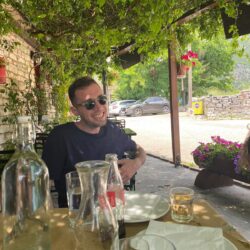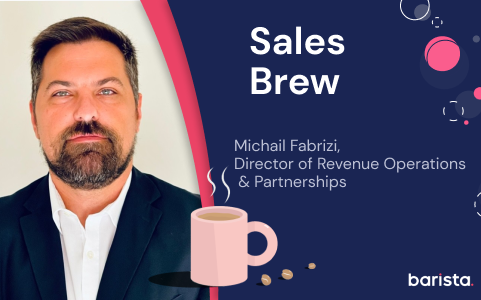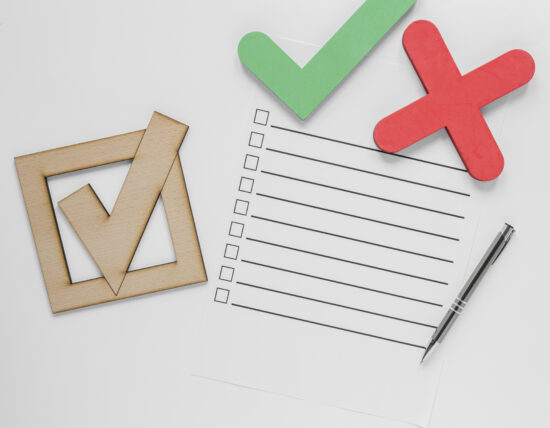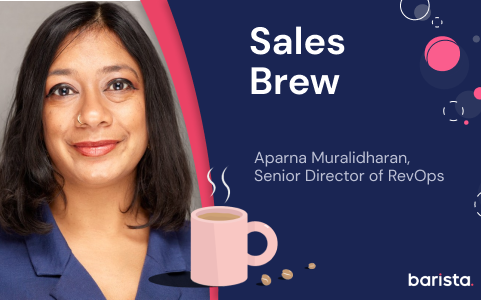Sales Brew - James Buckley, Sales Coach and Influencer at JB Sales

Roy Weinstock
For the third episode of Sales Brew by barista AI, we had the opportunity of hosting James Buckley, Chief Evangelist and Master of Ceremonies at JB Sales. James is an experienced sales leader, coacher, and influencer with exceptional personal branding under the name “SayWhatSales”. We wouldn’t miss the opportunity to hear James’s actionable tips on objection handling, so enjoy the show.
To watch the full interview and get updated on every sales brew episode, subscribe to our YouTube channel. A short version and transcription are below. Get a cup of coffee and enjoy the show!
What are the most important objections to prepare for?
So there are two types of objections that are in a sales process. The first one is during the prospecting phase, and these are soft objections like: “we’re all set”, “I don’t have time for this”, “It’s not a priority right now”. All they’re saying to you in that moment is that this is not even in their focus. But it’s a soft objection because they don’t really know that they’re not interested. They don’t really know that they’re all set. It’s just a way to not have this conversation right now. So when you get soft objections, know that they’re soft objections and treat them lightly, and consistently add value.
Invite them to things passively, talk to them about things that could be valuable for their planning moving forward. If you find out what their priorities are, that’s a great place to start talking about those priorities because you can provide value there and suddenly you become a unique
The second kind of objections, later down the cycle, are harder objections. That’s when you get objections like: “this is not in our budget”, “ we did not plan for this to be implemented this year”. This is also when you get tech situations that don’t align, that could stop your deal altogether. Those are real objections that you’ve got to be able to overcome. So know where to draw the line between those two.
Should every rep handle objection the same way in a certain company?
So, this question is more centered on whether or not your sellers know their ICP and AB test what’s working for that particular vertical, or persona. For example, if you’re speaking to a CRO, they’re most interested in revenue. So when you talk to them, everything that’s valuable to them is going to come into their brain in the form of dollars. That’s how they think about things. But if you’re talking to a marketing director, they’re more interested in things like impressions and exposure and reach. So you have to talk in those terms.
Objection handling of any kind comes down to who you’re selling to and then AB testing all of your possible reactions to see which one performs the best, and then using that as the standard operating procedure for the team. Mad scientists. That’s what we have to be in today’s selling environment.
How do you train on objection handling?
I like role playing because I think it gives someone that’s doing training an opportunity to put real roadblocks in front of people and watch their reactions. Part of the confidence comes from competence. So, when we feel more competent in our delivery, we handle objections better. Like when someone says “we already have a solution for that” if you don’t know exactly what you’re supposed to say right afterwards, it becomes a problem. But when you say “yes, we hear that all the time, and most of the time, when we find people using a solution, that comes down to two things, freight and price, right? And they’re saying “that’s exactly why we use that product”. And you’re saying that “we talk to people that use that all the time. our freight and our price works a little differently. And I think it might be more beneficial for you”. That is how handling an objection looks like and being trained to know what to say immediately that’s centered on the thing that your ICP and persona cares about the most.
How do you replicate “A” players game for other reps in the org?
Part of this is about creating a positive, competitive environment. All of the players that are not A players should be in the same room, or at least on calls with A players occasionally, so they can pick up those characteristics. Once a seller gets that vibe from that A player, the idea is that they will start doing the similar things that that A player does, and thus reaching that same level.
And that’s a good practice to get into. There’s also, like the upward mobility factor. If an SDR aspires to be an AE, I hope they’re attending the demos that they’re setting so that they can learn the other side of that coin. It takes time. It takes repetition. It takes a lot of exposure to that A player to really grab a hold of those characteristics and use them yourself.
What do you love most about sales?
The thing that I like about sales is that I’m an extrovert. When you are an extrovert, you feed off the energy of others around you. Sales is an opportunity to get in front of lots of strangers and feed off their energy. To me, that is what i like the most about sales. I meet strangers every single day and that is exciting for me. That’s actually weird, but i think sales gives you a reason to go meet new people every day, and I love meeting new people.That’s like my passion in life.
How do you like your coffee?
I like a little bit of milk, and i’ve been using a sugar substitute since last year. I was using creamer for a long time, but then I found out that it’s mostly vegetable oil. I’m not going to flavor my coffee anymore with vegetable oil. So now i’m using 2% milk and a sugar substitute. But i only drink one to one and a half cups in the morning. Usually i’m done with coffee by 12 o’clock.
If you want to learn more, feel free to become a member. Join US @joinjbsales.com. Go out there and invest in yourself. No one is responsible for making you successful. That’s your job.
To watch more from Sales Brew about Sales coaching and more:
- Episode 1: Sales Brew with Tyler Meckes, Account manager at Dooly
- Episode 2: Morgan J Ingram, Director of Sales Execution and Evolution at JB Sales
- Episode 3: James Buckley, Chief Evangelist and Master of Ceremonies at JB Sales
- Episode 4: Nieka Mamczak, Head of Sales Enablement at StackOverflow
- Episode 5: Sam Sweeny, Sales Operations Manager
- Episode 6: Benjamin Roach, Global Sales Operations Manager at Ardoq
- Episode 7: Elgun Aliyev, Salesforce Admin at CentralReach
- Episode 8: Amanda Harwood, Sales Operations Manager
- Episode 9: Jake Rasmussen, Salesforce Consultant


